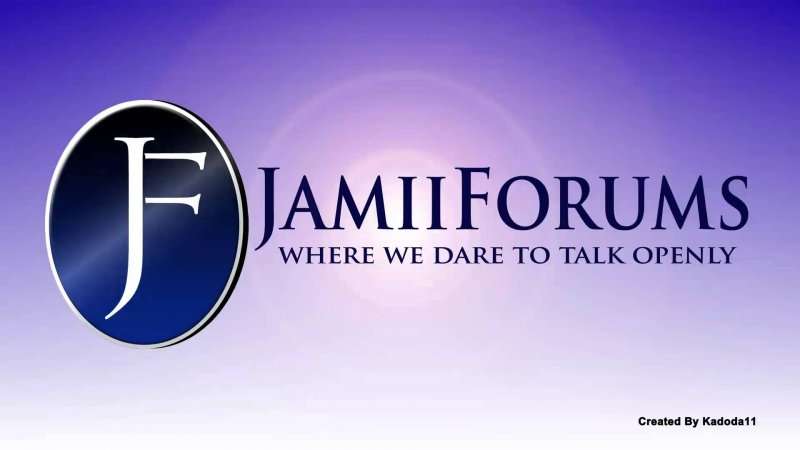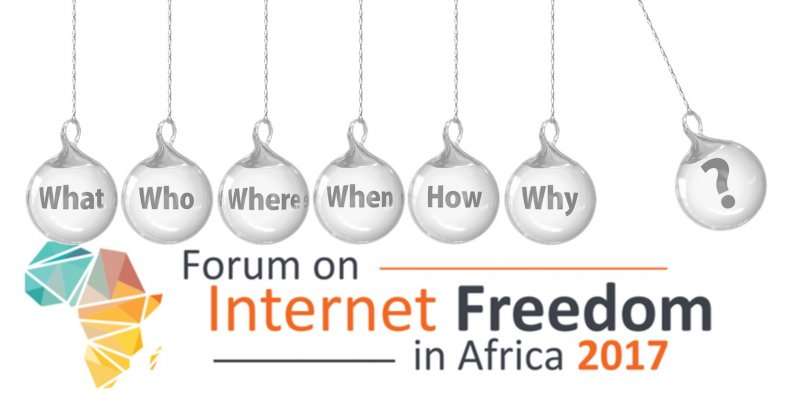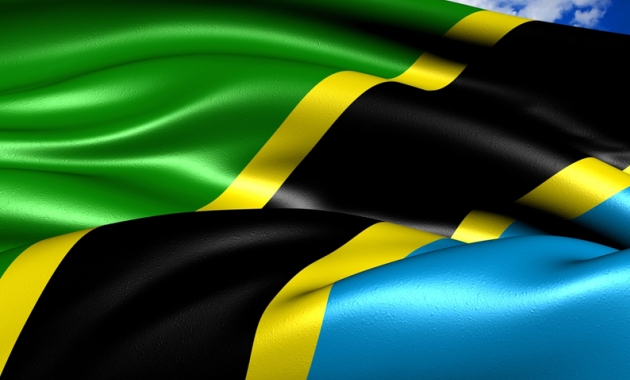By Ashnah Kalemera |
A Tanzanian court has acquitted the founders of popular online discussion platform Jamii Forums, who were charged over failure to comply with a police order to disclose the identity of two users of their platform.
The magistrate’s court at Kisitu in the capital Dar es Salaam found that Maxence Melo and Micke William had no case to answer in the case, in which the two were alleged to have obstructed investigations in contravention of Section 22(2) of the Cyber Crimes Act, 2015 by refusing to comply with an order to disclose their platform users’ data. The ruling cuts the number of cases against Melo and William to two.
Reacting to the June 1, 2018 decision, Melo stated that it was a “victory for anyone who would like to see freedom of expression flourish” in Tanzania. He said he was glad to have only two outstanding cases, having recently endured four court appearances over five days.
In December 2016, Melo was charged with three offences: two counts of not complying with a disclosure order under Section 22(2) of the Cyber Crimes Act (2015) and one count of managing a domain that is not registered in Tanzania under Section 79(c) of the Electronic and Postal Communications Act (2010). Melo was initially charged alone but William was subsequently added to the cases as a co-accused, since he is a shareholder in Jamii Media, the legal entity under which Jamii Forums is run.
Section 22(2) of the Cyber Crimes Act relates to unlawful interference with investigations and refusal to comply with an order under the Act. The penalty, upon conviction, is a fine of three million Tanzania Shillings (USD 1,300) or imprisonment for one year, or both. Meanwhile, Section 79 of the Electronic and Postal Communications Act (2010) provides for the regulation of all electronic communication numbering and electronic addresses by the Tanzania Communications Regulatory Authority (TCRA). Part C of the section mandates the authority to perform oversight role of management of .tz – the country’s code Top Level Domain (ccTLD).
The charges stemmed from Jamii Forum’s refusal to comply with police disclosure notices to reveal the Internet Protocol (IP) addresses, email and phone numbers of users, whose identities authorities sought after whistleblowing corruption scandals in the oil and banking sectors.
Initially, Jamii Media, went to court challenging the disclosure orders and specifically provisions of Section 32 and 38 of the Cybercrime Act. However, the petition was dismissed in a ruling that dealt a blow to intermediary liability rules in Tanzania.
During court proceedings in the now dismissed case, prosecutors called four witnesses including two officials from the Tanzania Police cybercrime department. Court also heard testimony from the Human Resource Manager of CUSNA Investment LTD, the company which made a defamatory report to police regarding the information disclosed by the whistleblowers. The fourth witness called by the prosecutor was the Acting Deputy Registrar of Intellectual Property at Tanzania Business Registrations and Licensing. Proceedings then stalled with the prosecution indicating that it had no further witnesses to call.
Since its enactment in 2015, state authorities in Tanzania have used the Cyber Crimes Act to arrest and prosecute individuals for expressing critical opinion. Reportedly passed in the middle of the night, the Act is one of many recent laws in Tanzania that have been criticised for disregarding free speech and access to information, among other citizens’ constitutionally guaranteed rights.
Hearings in the remaining two cases against Melo and William are scheduled to continue during June.
Reflecting on the Forum on Internet Freedom in Africa (FIFAfrica) at the Internet Governance Forum 2017
IGF Pre-event |
Join the Collaboration on International ICT Policy for East and Southern Africa (CIPESA) at the Internet Governance Forum 2017 where we will share on the evolution of the Forum on Internet Freedom in Africa (FIFAfrica) at a pre-event on December 17, 2017!
We’ll explore insights from our latest report on the State of Internet Freedom in Africa 2017 themed Intermediaries’ Role In Advancing Internet Freedom – Challenges And Prospects as well as uncover what is sometimes left out of discussions on the economic impacts of internet shutdowns in Sub-Saharan Africa. For this discussion we’ll reference a new framework we developed this year. You can see more about it here: Calculating the Economic Impact of Internet Disruptions in Sub-Saharan Africa.
Are you keen on going into the IGF with a solid background on the internet freedom landscape in Africa? Join us as we reflect on the Forum on Internet Freedom in Africa (FIFAfrica), discuss its evolution, the lessons learnt, the gaps and opportunities that lie ahead for policy development and practical advancement of digital rights in Africa.
- Venue: Join us at Room 18, Centre International de Conférences Genève (CICG)
- Location: 17 rue de Varembé, CH – 1211 Genève 20
- Date: Sunday, December 17, 2017
- Time: 13h30 – 14h30
We’ll also share how various organisations have supported the growth of the FIFAfrica in various ways ranging from increasing participation of African delegates, in-depth research and analysis, unique workshops, through to skills exchange and network building.
To confirm attendance, please register here.
Analysis of Tanzania’s Electronic and Postal Communications (Online Content) Regulations 2017
Policy Brief | The proposed Electronic and Postal Communications (Online Content) Regulations, 2017 join the catalogue of legislation related to online content in Tanzania that threaten citizens’ constitutionally guaranteed rights to freedom of opinion and expression and the right to seek, receive and impart information. The regulations were developed pursuant to section 103(1) of the Electronic and Postal Communications Act, 2010 (EPOCA), which empowers the Minister of Communications to make regulations on content related matters. Enacted in March 2010, the EPOCA aims to keep the communications sector abreast with developments in the electronic communications industry by providing for a comprehensive regulatory regime for electronic communications and postal communications service providers.
The regulations specify obligations of service providers and users of online platforms including social media, discussion forums, and online broadcasts (radio and television). They also confer powers upon the Tanzania Communications Regulatory Authority (TCRA) to regulate online content, including through registration of users and platforms, and taking action against non-compliance with the obligations, such as ordering the removal of “prohibited content.”
The regulations have some important provisions and set minimum standard requirements with regards to the protection of children online, fighting hate speech and extremism online, and promoting user responsibility and digital security practices. However, the regulations should to reviewed and amended to have clear, unambiguous definitions and wording, and quash the requirement for registration of bloggers and users of similar online platforms. It is also essential that not too much power is vested in TCRA with regards to content take-downs and that diversity in content availability online is promoted. The obligations set out should not turn content service providers and publishers into monitors, by handing them responsibility such as use of moderating tools to filter content, conducting content review before publication, and undertaking mechanisms to identify sources of content.
Moreover, there should be a clear appeal mechanism against orders to remove or block content, and such remedial measures should also be applicable once an order for blockage or removal has been issued but not yet been effected. Overall, the regulations should uphold citizens’ rights to privacy, access to information and free expression. Furthermore, TCRA, pursuant to EPOCA’s objectives of promoting a developed telecommunications sector in Tanzania, should ensure that the regulations foster internet access and affordability without placing undue requirements on service providers or making costs prohibitive, which would act as a barrier to market entry, including for public access facilities such as internet cafes.
Read CIPESA’s analysis of the implication on access to the internet, intermediary liability, user privacy, censorship, surveillance and freedom of expression of the proposed regulations in Tanzania.
Tanzania Court Deals a Blow to Intermediary Liability Rules
By Ashnah Kalemera |
A court in Tanzania has dealt a blow to the rules governing the country’s internet intermediaries, after ruling that requests for disclosure of user information for law enforcement purposes pursuant to the Cybercrimes Act (2015) are not arbitrary. In a March 8, 2017 ruling, three judges of the court in Dar es Salaam also ruled that the absence of regulations to govern the enforcement of the Act did not render the controversial law unconstitutional.
The ruling dismissed a petition filed by Jamii Media, proprietors of the popular Jamii Forums discussion platform, who argued that Section 32 of the Cybercrimes Act was arbitrary and contrary to citizens’ right to privacy guaranteed by article 16 (1) of the country’s constitution. Jamii filed the petition last April, after receiving three notices from police demanding that it discloses the personal details of up to four users who had posted on the forum information on political tensions among members of the ruling party Chama Cha Mapinduzi, and scandals in one of the country’s leading banking institutions.
The notices, issued during January and February 2016 pursuant to Section 32 of the Act, demanded disclosure of the names of the users, their emails and Internet Protocol (IP) addresses. Last December, Jamii Forums founder Maxence Melo was charged with obstruction of investigations under Section 22 of the Cybercrimes Act for failure to comply with the disclosure notices.
Section 32 of the Cybercrimes Act provides:
(1) Where the disclosure of data is required for the purposes of a criminal investigation or the prosecution of an offence, a police officer in charge of a police station or a law enforcement officer of a similar rank may issue an order to any person in possession of such data compelling him to disclose such data.
(2) The order issued under subsection (1) shall be granted to a law enforcement officer who shall serve the order to the person in possession of the data.
(3) Where the disclosure of data cannot be done under subsection (1), the law enforcement officer may apply to the court for an order compelling:
(a) a person to submit specified data that is in that person’s possession or control; or
(b) a service provider offering its services to submit subscriber information in relation to such services in that service provider’s possession or control.
(4) Where any material to which an investigation relates consists of data stored in a computer system or device, the request shall be deemed to require the person to produce or give access to it in a form in which it is legible and can be taken away.
In its petition, Jamii Media argued that no procedures were in place to enforce Section 32 as required under Section 39 (2) of the Act to govern the circumstances and procedure of disclosure by intermediaries. Section 39 (2) states that the Minister for Information and Communication Technology shall “prescribe the procedures for service providers to avail competent authorities, at their request, with information enabling the identification of recipients of their services”.
However, the judges noted that, often, for laws that provide for putting in place regulations by the Ministers responsible, “it takes a while before the said regulations are formulated.” This implied that intermediaries were obliged to honour disclosure notices in the absence of the regulations.
In their defense, the Tanzania Police argued that they had the duty to carry out investigations and prosecution of offences and maintained that the disclosure notices issued to Jamii Media were “justified”. According to the state attorney, the disclosure notices did not infringe upon citizens’ right to privacy because they were “intended to obtain the names of people who have published information that may turn out to be relevant to some offences under investigation”. The state attorney added that the Cybercrimes Act did not require the police to disclose to the recipient of the disclosure notices the offences under investigation.
Meanwhile, Jamii Media also argued that under sub-section 32 (4), the 2015 Act confers powers upon authorities to require the surrender of devices on which information is contained, without any safeguards. “If an investigator takes away one such device in order to access one piece of information relevant to a particular investigation, there is no guarantee that by taking the same, the investigation will not access other pieces of information contained in the same device and [which are] irrelevant to the matter being investigated,” it argued.
Judges ruled that Section 32 (4) did not empower the police to take away the devices as contended. “Our understanding of that section is that the person to whom the request has been made, like the petitioner in this case, may print the information such that it can be read and/or taken away by the investigators in printed form,” the judges stated.
Citing jurisprudence including provisions under Article 19 (2) and (3) of the International Covenant on Civil and Political Rights, the judges considered that Section 32 of the Cybercrimes Act was “proportional” for balancing individual human rights on the one hand and public interest on the other.
Lawyers representing Melo in the ongoing case plan to file submissions for police to seek court’s intervention for mandatory disclosure pursuant to provisions of the Act and dismiss the obstruction charges.
For more on the government’s tactics to stifle citizens’ digital rights in Tanzania see the State of Internet Freedom in Tanzania 2016 report.
Online Censorship in South Africa
South Africa is among the top five African countries with the highest mobile broadband reach, preceded by Ghana, Zimbabwe, Namibia and Egypt. As of June 2014, internet users had increased to 52% of the population, majority of them using mobile devices to access the internet.
Although the country has been ranked free in internet freedom rankings and held highly in respect to promoting equal rights, recent developments in the offline and online world say otherwise.
In March 2015, a consumer activist who runs the CAMcheck blog that reports on misleading claims made by consumer goods providers, was forced to move his website offshore following a take-down request made by sports supplement company USN for content described as “unsubstantiated and defamatory”.
According to Section 78 of the Electronic Communications and Transactions Act (ECTA) 2002, ISPs are not obliged to monitor the data they transmit or to actively seek facts or circumstances indicating an unlawful activity. Service providers are, however, liable for failure to comply when issued with takedown requests from users as provided under Section 77 of the Act.
It is thus no surprise that Hetzner, the CAMcheck blog web hosting provider, also a member of the South Africa Internet Service Providers Association (ISPA), complied with the take down request.
Also in March 2015, the Film and Publication Board (FPB) gazetted a Draft Online Regulation Policy, 2014, which contains clauses that have the potential of blocking online content – including films, games and certain publications – prior to publication.
The regulations require that anyone wishing to publish or distribute such content has to first acquire a digital publisher’s online distribution agreement with the FPB, after paying a subscription fee. Once paid, the publisher would have to submit the content to the FPB for classification prior to publishing.
The FPB has the mandate to regulate the creation, production, possession and distribution of films, games and certain publications by way of classification, to protect children from exposure to disturbing and harmful material and from premature exposure to adult material and to criminalise child pornography and the use and exposure of children to pornography.
The Draft Online Regulation Policy states that, the policy, “read with the Online Regulation Strategy and the ECT Act Amendment Bill, will also ensure that classification focuses on media content, rather than on platforms or delivery technologies.”
However, civil society organisations have criticised the draft policy, stating that they are “effectively a specific form of pre-publication censorship, which is not acceptable.” They also add that the time spent on the pre-classification of content would undermine one of the most valuable traits of the internet – its immediacy.
Further concerns about the new regulations include the exclusion of content by parties unable to pay the fees required and thus a potential limitation on the diversity of online content.
But online content censorship is not new in South Africa. In 2012, “The Spear”, a controversial painting by Brett Murray which depicted President Jacob Zuma with his genitals exposed, was published on the City Press website – a daily newspaper. President Zuma and the African National Congress Party obtained an order for the removal of the image from the website of City Press on the grounds that it was unfit for viewers under the age of 16, according to classifications by the FPB. The Goodman Gallery (where the painting was displayed) approached the FPB Appeal Tribunal which found that the ruling in favour of the injunction was incorrect. The City Press nonetheless removed the image from its website.
Meanwhile in the first quarter of 2013, the South African Counter Intelligence Agency made a content removal request to Google for a blog post that was ‘allegedly infringing copyright by criticizing a media release that the agency had issued.”
Although this request was denied, past incidents together with recent developments in the country bring to the fore the crucial online freedom issues of intermediary liability and freedom of expression.
In its 2014 State of Internet Freedoms in South Africa report, the Collaboration on International ICT Policy for East and Southern Africa (CIPESA) highlights these gaps. It states that the absence of detailed provisions in the guidelines for recognition of industry representative bodies of ISPs “creates a situation where ISPs are not free to establish any ’notice’ or ‘notice and put-back’ mechanism, which would allow the user to respond to the allegations of infringement or, respectively, to provisionally restore the allegedly infringing content.”
The ECTA Amendment Bill of 2012 attempts to address some of the existing gaps by introducing Section 77A, which provides consumers with the right to be heard by ISPs before a takedown notice is enforced. However, this section still has limited provision for a user to respond to the allegations of infringement or to provisionally restore the allegedly infringing content. ISPs are merely required to respond to a “first take-down notice” within 10 business days (lesser days if the complainant can demonstrate irreparable or substantial harm).
The 2014 report calls for a review of South African legislation that is applicable to online freedom, specifically pointing out the need for immediate revision of the Films and Publications Act.
The report also recommends increased dialogue between civil society and policy makers to progressive law reforms, including a review of legislation that have actual or potential chilling effects on internet freedom.
Read the full State of Internet Freedoms in South Africa Report here.





